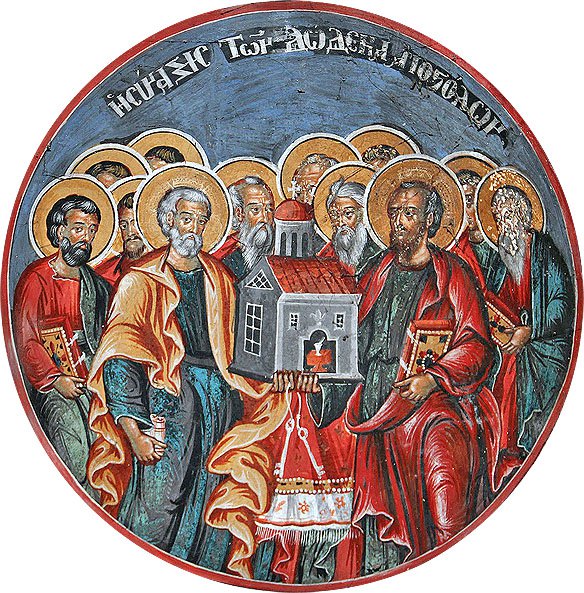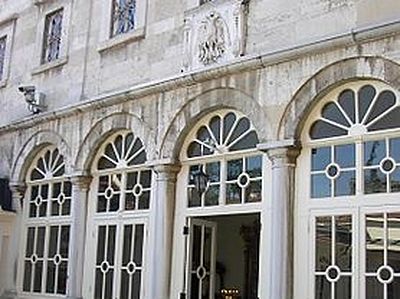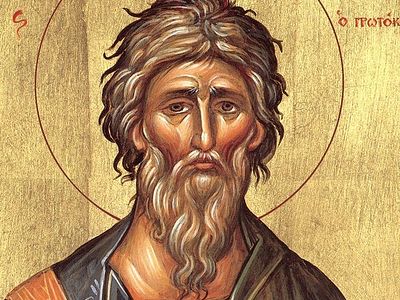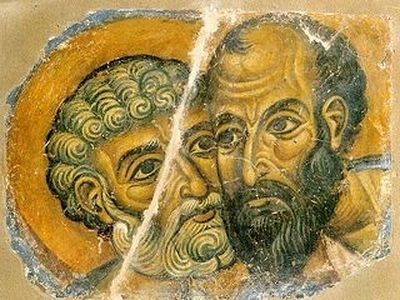It became clear through unlearned men that the cross was persuasive; in fact, it persuaded the whole world. Their discourse was not of unimportant matters but of God and true religion, of the Gospel way of life and future judgment, and yet it turned ordinary, uneducated men into philosophers. See how the foolishness of God is wiser than people, and his weakness stronger than people!
In what way is it stronger? It made its way throughout the world and overcame everyone; countless people sought to eradicate the very name of Christ, but that name flourished and grew ever mightier. Its enemies lost and perished; the living, who waged a war on a dead man, were shown to be helpless. Therefore, when a Greek tells me I am dead, he shows only that he is really the foolish one, for I, whom he thinks a fool, prove to be wiser than those reputed to be wise. So, also, in calling me weak, he merely shows that he is even weaker. For the good deeds which tax-collectors and fishermen were able to accomplish by God’s grace, are beyond the imagination of philosophers, rulers, and the countless multitudes.
Paul had this in mind when he said: The weakness of God is stronger than people. That the preaching of these men was indeed divine is brought home to us in the same way. For how otherwise could twelve uneducated men, who lived on lakes and rivers and wastelands, conceive the idea for such an immense enterprise? How could men who perhaps had never been in a city or a public square think of setting out to do battle with the whole world? That they were fearful, timid men, the evangelist makes clear; he did not reject the fact or try to hide their weaknesses. Indeed he turned these into a proof of the truth. What did he say of them? That when Christ was arrested, the others fled, despite all the miracles they had seen, while Peter, who was leader of the others, denied him.
How then do we account for the fact that these men, who in Christ’s lifetime did not stand up to the attacks by the Jews, set forth to do battle with the whole world once Christ was dead – if, as you claim, Christ did not rise and speak to them and rouse their courage? Did they perhaps say to themselves: “What is this? He could not save himself but he will protect us? He did not help himself when he was alive, but now that he is dead he will extend a helping hand to us? In his lifetime he brought no nation under his banner, but by uttering his name we will win over the whole world?” Would it not be wholly irrational even to think such thoughts, much less to act upon them?
It is evident, then, that if they had not seen him risen and had proof of his power, they would not have risked so much.




